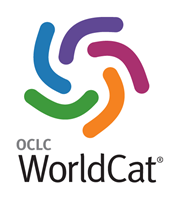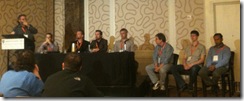
Schema.org 2.0
About a month ago Version 2.0 of the Schema.org vocabulary hit the streets. But does this warrant the version number clicking over from 1.xx to 2.0?
Check out our new fixed price service to find out how your site is performing!

About a month ago Version 2.0 of the Schema.org vocabulary hit the streets. But does this warrant the version number clicking over from 1.xx to 2.0?

I am pleased to share with you a small but significant step on the Linked Data journey for WorldCat and the exposure of data from OCLC. Content-negotiation has been implemented for the publication of Linked Data for WorldCat resources. For those immersed in the publication and consumption of Linked Data, there is little more to say. However I suspect there are a significant number of folks reading this who are wondering what the heck I am going on about. It is a little bit techie but I will try to keep it as simple as possible. Back last year, a …

Day three of the Semantic Tech & Business Conference in San Francisco brought us a panel to discuss Schema.org, populated by an impressive array of names and organisations: Ivan Herman, World Wide Web Consortium Alexander Shubin, Yandex Dan Brickley, Schema.org at Google Evan Sandhaus, New York Times Company Jeffrey W. Preston, Disney Interactive Media Group Peter Mika, Yahoo! R.V. Guha, Google Steve Macbeth, Microsoft This well attended panel started with a bit of a crisis – the stage in the room was not large enough to seat all of the participants causing a quick call out for bar seats and …

Today’s Wall Street Journal gives us an insight in to the makeover underway in the Google search department. Over the next few months, Google’s search engine will begin spitting out more than a list of blue Web links. It will also present more facts and direct answers to queries at the top of the search-results page. They are going about this by developing the search engine [that] will better match search queries with a database containing hundreds of millions of “entities”—people, places and things—which the company has quietly amassed in the past two years. The ‘amassing’ got a kick start …

The Web has been around for getting on for a couple of decades now, and massive industries have grown up around the magic of making it work for you and your organisation. Some of it, it has to be said, can be considered snake-oil. Much of it is the output of some of the best brains on the planet. Where, on the hit parade of technological revolutions to influence mankind, the Web is placed is oft disputed, but it is definitely up there with fire, steam, electricity, computing, and of course the wheel. Similar debates, are and will virtually rage, …

Like many of my posts, this one comes from the threads of several disparate conversations coming together in my mind, in an almost astrological conjunction. One thread stems from my recent Should SEO Focus in on Linked Data? post, in which I was concluding that the group, loosely described as the SEO community, could usefully focus in on the benefits of Linked Data in their quest to improve the business of the sites and organisations they support. Following the post I received an email looking for clarification of something I said. I am interested in understanding better the allusion you …
It is well known, the business of SEO is all about influencing SERPs, or is it? Let me open up those acronyms: Those engaged in the business of Search Engine Optimisation (SEO) focus much of their efforts on influencing Search Engine Result Pages (SERP), or more specifically the relevance and representation of their targeted items upon those pages. As many a guide to SEO will tell you, some of this is simple – understanding the basics of how search engines operate, or even just purchasing the right advertising links on the SERP. Quite simple in objective, but in reality an …